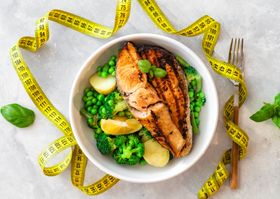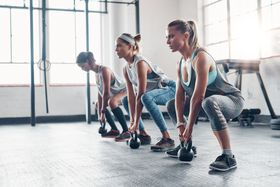Trim Down Answers
Have a question about diet and nutrition, exercise and fitness, or health and vitality? Our nutrition and fitness experts are here to help! We cover everything from menopause to metabolism boosters and beyond.
Recent Answers
Doing Sit-Ups to Lose Belly Fat: Is It Possible?
Yes, sit-ups help you lose belly fat—but not the way you may expect. You can't actually spot-reduce fat with any type of exercise, although you can tone specific muscle groups. However, sit-ups tone c
Asked a year ago
Does Creatine Burn Belly Fat?
Belly fat is closely associated with a higher risk of diseases, including diabetes and heart disease. Losing belly fat reduces the dangerous visceral fat accumulated around organs in the abdominal cav
Asked a year ago
Does a Cold Stomach Mean Your Body Is Burning Fat?
Although we generally feel hot and sweaty after a workout, our stomachs might sometimes feel cold. Does this mean fat is getting burned or has your stomach gone cold due to other reasons? Is this a go
Asked a year ago
Is Eating After 6PM Actually Bad for You?
Embracing a balanced diet is an important step towards meeting your fitness and weight loss objectives. It's not just about what you eat, but when you eat it. A popular notion suggests that consuming
Asked a year ago
Does Sweating More Mean You're Losing More Weight?
Sweat is often seen as the telltale sign of a rigorous workout session, and many associate it with weight loss. But does breaking a heavier sweat actually translate into shedding more pounds? Let's ex
Asked a year ago
Related Articles
Recent Posts
Anju Mobin
Does Creatine Burn Belly Fat?
Healthy Living With TDC
Stay motivated to eat right & exercise with these tips, tools, & techniques
We don't email often. Unsubscribe anytime.




